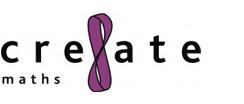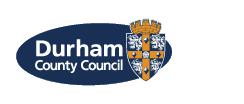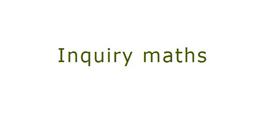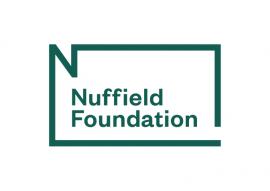New and Aspiring Leaders of Maths Course Resources
This list of resources are to compliment the resources session of the New and Aspiring Leaders of Mathematics Course held at the National STEM Learning Centre in May 2014.
SMILE Cards
SMILE (Secondary Mathematics Individualised Learning Experiment) was initially developed as a series of practical activities for secondary school students by practising teachers in the 1970s. It became a complete individualised scheme based around a network of activity cards and assessments.
The cards were organised so that each student followed their own path through the work which was recorded on a network.
This collection contains:
• SMILE workcards organised into mathematical topics based upon the SMILE networks.
• SMILE booklets, which are cards that that are booklets in themselves.
• Supplementary materials.
SMILE Mathematics Books
SMILE (Secondary Mathematics Individualised Learning Experiment) was initially developed as a series of practical activities for secondary school students by practising teachers in the 1970's.
These mathematics books are intended to be not only a source of ideas but to be a flexible resource that can be adapted to different circumstances and ability groups. They cover Key Stages Two, Three and Four.
Each of these books is a standalone resource full of ideas and suggestions, many of which have been collected or trialled by practising teachers.
Task Maths
The course consists of five student books, one for each year, and parallel teacher resource books. Task Maths provides one set of books which are intended for all students. There are not different tracks for students judged to be at different levels of ability. The student's books for the Key Stage Three course are written so as to be manageable by students working at level three and yet make demands on students working at level eight (or beyond). The books for Key Stage Four similarly cover the full spread of attainment for GCSE
National Strategies: Secondary Mathematics
The National Strategies were professional programmes for children and young people across all the school phases in England, delivered on behalf of the Department for Education. They were first introduced in 1998 and ceased to operate in 2011. The materials were designed to help teachers and schools focus on the core business of improving teaching and learning. They are intended to offer support to both new and experienced teachers, as well as subject leaders and senior leaders. Here is a selection of the best materials for mathematics across all the phases.
The Standards Unit: Improving learning in mathematics
The Standards Unit: Improving Learning in Mathematics resources were produced as a response to the Smith report. The materials use active learning approaches originally designed for post-16 mathematics but for use across the secondary phase. The resources, and the work of the Standards Unit with leading maths experts in the country, were part of the Department for Education and Skills' response to the Smith Report and offer practical and effective ways to improve learning in mathematics.
cre8ate maths
The cre8ate maths project was a CPD initiative for Yorkshire and Humberside teachers of mathematics. It features resources applying maths to key areas of the economy focussing on functional mathematics skills for Key Stage Three students.
Durham Maths Mysteries
The Durham Maths Mysteries were written by Shirley Fall of Durham County Council as a resource to engage students in mathematics and promote discussion. The activities are based on cards with statements about the area of mathematics being covered. Students then have to use reasoning to decide how to tackle the the task. Some of the mysteries have accompanying support materials and extension questions.
Inquiry Maths
Inquiry maths is a model of teaching that encourages students to regulate their own activity while exploring a mathematical statement called a prompt. Inquiries can involve a class on diverse paths of exploration or in listening to a teacher's exposition. In inquiry maths, students take responsibility for directing the lesson with the teacher acting as the arbiter of legitimate mathematical activity.
The collection contains three sub-collections containing number themed prompts, algebraic themed prompts and geometry themed prompts. Further information about inquiry lessons and how to create your own prompts can be found on the inquiry maths website.
Instant Maths Ideas
Instant Maths Ideas is a collection of resources designed for teachers to delve into for inspiration, providing the busy teacher with ideas for starters, extension questions and probing questions to supplement their lesson plan.
The collection contains three sub collections: Number and Algebra, Space and Shape and Numeracy and ICT. In each sub collection, the complete resource can be found. In addition, each section of the resource is available as separate topics for ease of use.
Problem Cards
This collection, part of the Nuffield Mathematics Project, contains two packs of problem cards that have been designed for use by students in conjunction with the main work
described in the Teachers' Guides. It is intended that the majority of students should at least be able to 'have a go' at most of the questions, but should also be encouraged, to the full extent of their individual abilities, to think around a problem and to devise alternatives and generalisations.
There are two packs of problem cards, purple and red, each accompanied by a teachers' guide.
Bowland Maths case studies
This collection offers students, and their teachers, a set of interesting, exciting problems. Each problem is designed to develop thinking, reasoning and problem solving skills. In completing the activities students will be required to represent a situation in mathematical terms, analyse models, interpret, evaluate and communicate their results.
The case studies are very different from each other, both in content and style.Topics range from real issues to fantasy worlds, but all set in contexts to which students can relate. Each case study is designed to occupy three to five lessons and contains materials for students, teachers’ notes and lesson plans. Many are based on ‘open’ questions with no one right answer and most can be tackled on different levels. Most of the case studies require access to some form of ICT.
Bowland Maths: Assessment Tasks
Bowland Maths includes over thirty tasks designed to help assess students’ achievements and progression against key processes. To help with this assessment, each task contains sample work, and a 'progression table' showing how students’ work on the task can provide evidence of their progress with the four key processes: representing, analysing, communicating and reflecting.
These materials are also ideal for formative assessment that concentrates on providing the types of rich feedback that have been proven to help students improve their reasoning.








